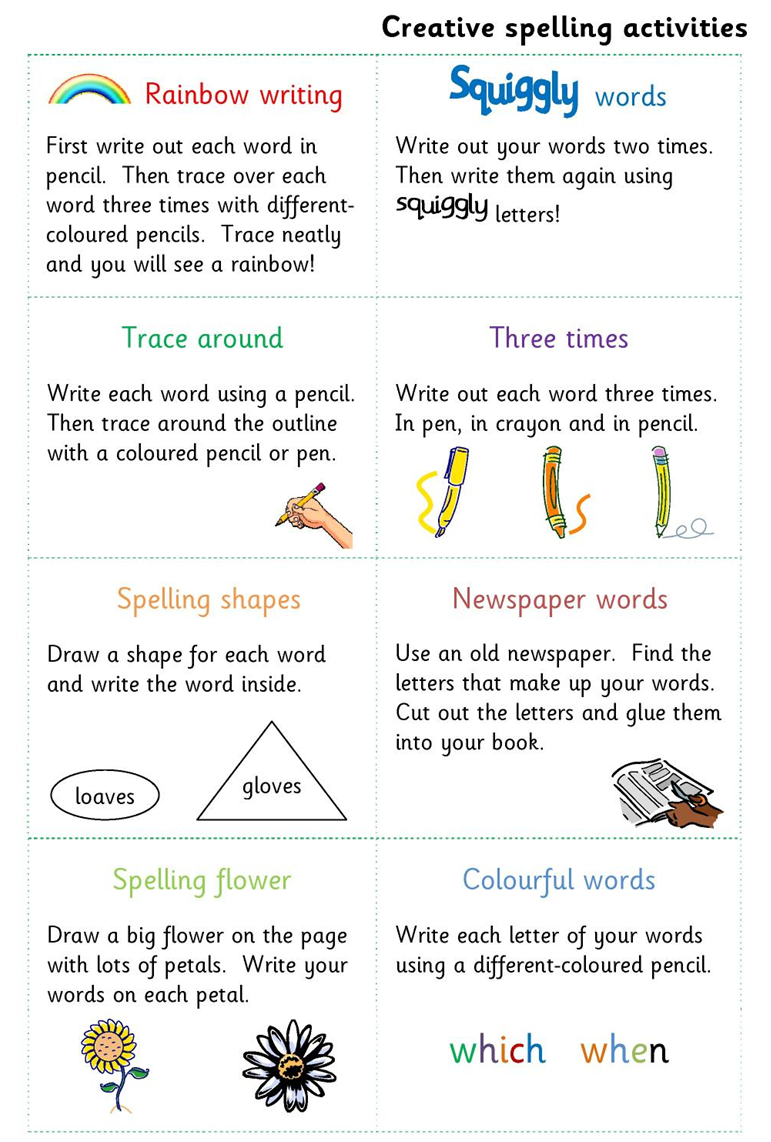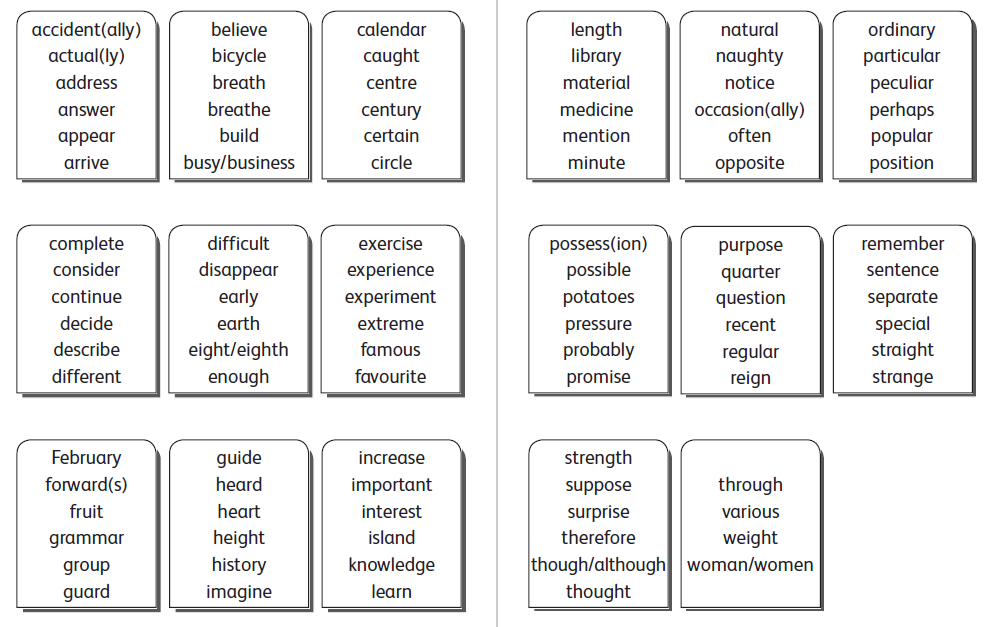Autumn 1 Spelling

WB 13.10,2025
This week's spellings focus on homophones and near-homophones. The five pairs of words differ by a single letter (‘c’ or ‘s’) depending on whether they are used as a noun or a verb.

WB 06.10.2025
Year 5/6 words

WB 29.09.2025
The letter string -ough is one of the most challenging parts of English spelling—not because the spelling changes, but because the way it's pronounced can vary a lot from word to word.
To help children master these tricky words, focus on helping them recognise the word and how it sounds.
Grouping words by their pronunciation (like though, through, rough, cough) makes it easier for children to remember how to spell them by association.

WB: 22.9.25
Children will be familiar with the vocabulary in the Year 3/4 word list, but the words contain many of the spelling pitfalls that challenge them in their everyday writing. These words will need to be returned to on a regular basis, e.g. in the units on words from children’s own writing, in order to consolidate accurate spelling.

WB:15.9.25
Suffixes
A suffix is a group of letters added to the end of a root word that changes its meaning or its role in a sentence. Occasionally, changes to the root word are necessary when the suffix is added, e.g. changing ‘y’ to ‘i’, dropping the final ‘e’.

WB: 08.09.25
Prefixes
A prefix is a group of letters added to the front of a root word to change its meaning.
un- usually means not
re- usually means again or back
sub- usually means under or below
super- usually means above or beyond
anti- usually means against or opposed to
auto- usually means self

